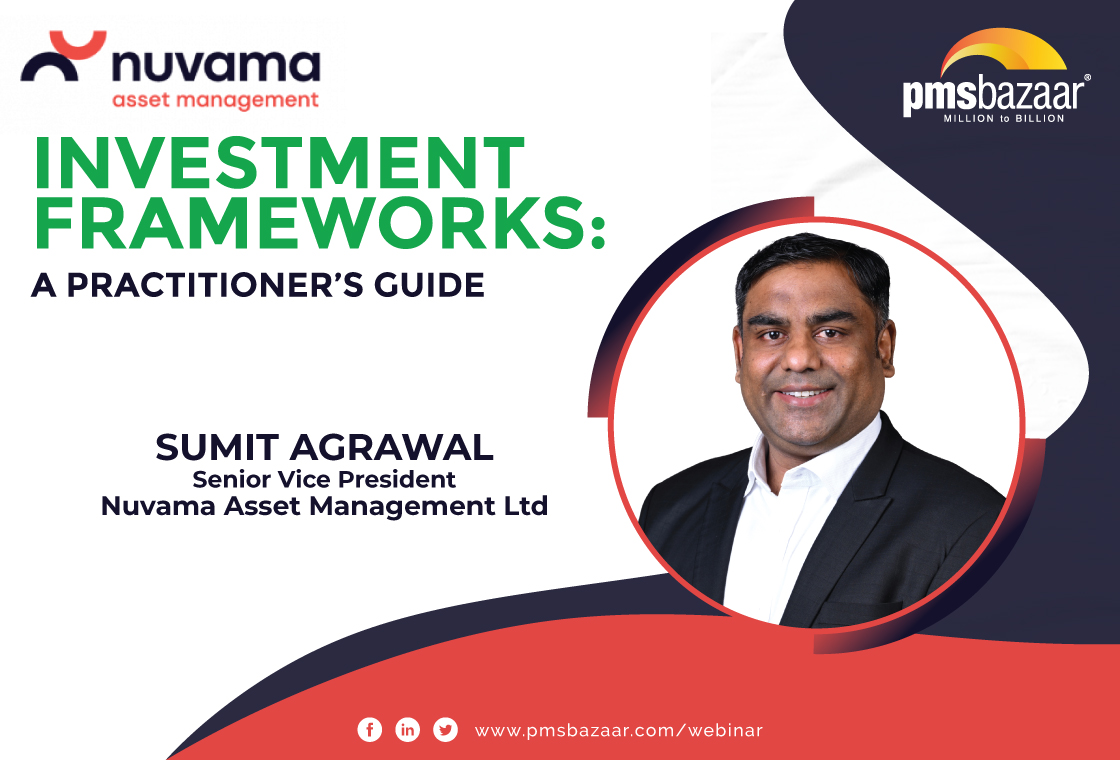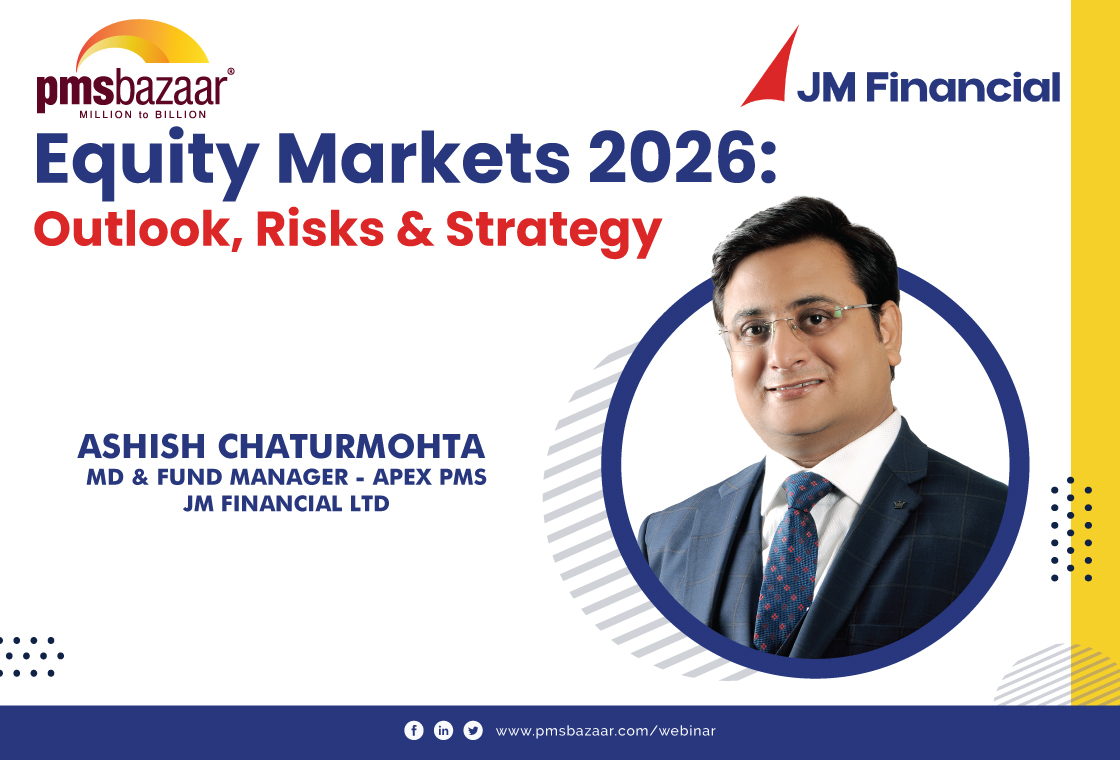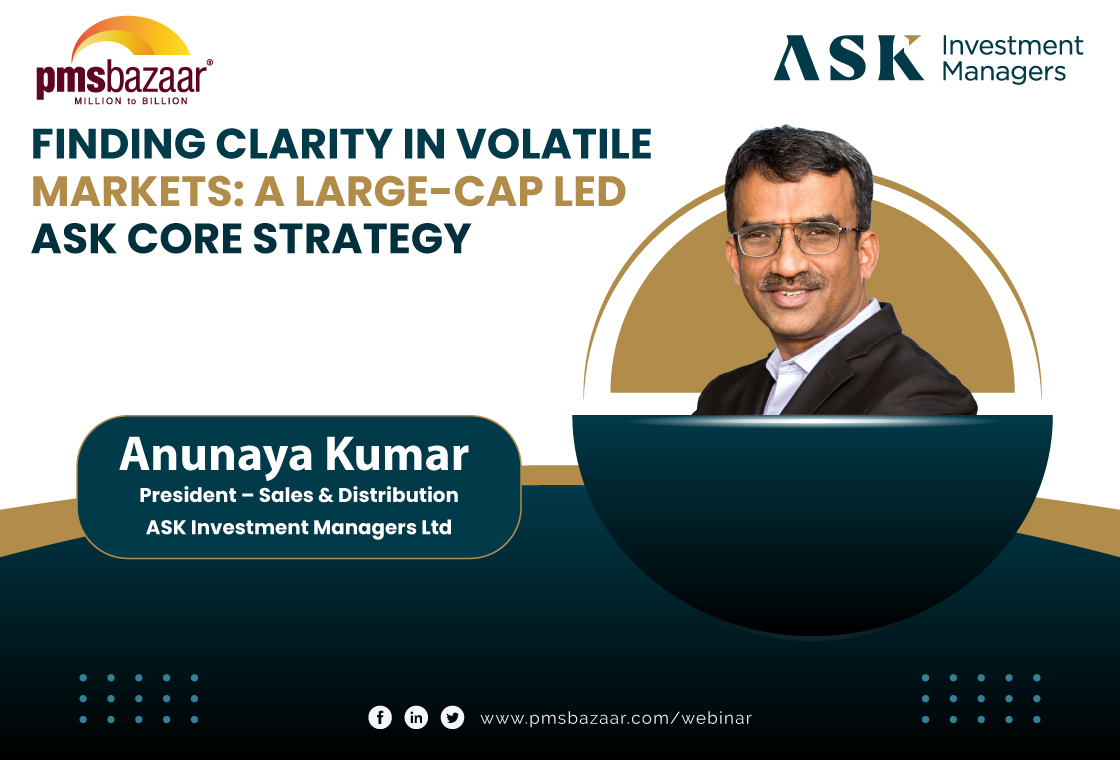A little-known known PMS is making waves these days. Meet Sameeksha Capital whose PMS strategy consistently finishes among the top funds with substantial leads over the Universe average and median. Not just that, on a rolling three year period basis, it has remained amongst the top performing PMSes on a consistent basis with a large delta over universe average. The corporate office of Ahmedabad-based Sameeksha, which is Hindi for thorough analysis, is humbly nestled in a tony locality literally a stone’s throw from Astral Poly, AIA Engineering, Symphony, and Zydus Wellness --- four companies that have created huge shareholder value.

Founded by noted analyst Bhavin Shah, Sameeksha Capital was actually set up to manage his own personal wealth in an organized manner. As such, he is Sameeksha’s first client. More than 4 years later and more than tens of wealthy clients later, it is clear why Bhavin, who studied corporate finance under Raghuram Rajan in the University of Chicago Booth, is winning at managing money. Marrying an 'engineer mind' with investing instincts, Bhavin loves the 'boring' world of picking multibagger stocks that involves showing up at factories thousands of kilometres away unannounced, attending AGMs, filling checklists and so on.
In an exclusive webinar hosted by PMS Bazaar, he shares the stage and thoughts alongwith fund advisor US-based Eswar Menon, who brings a long track record of outperformance and risk management in emerging markets. Read on to know more.
Money management begins at home
Bhavin is among the most successful professionals in equities. He was rated the #1 technology sector analyst in Institutional Investors polls for a decade, and rose from an associate to Managing Director within a span of six years in the Investment banking industry. His experience includes 7 years as Managing Director and the Global head of Technology at JP Morgan, 6 years as Director and Head of Asia Pacific Technology at Credit Suisse, and 5 years as founder of Equirus Securities where he built an award-winning business from scratch on a tiny budget.
Then, Sameeksha happened. It was supposed to be his family office, but quickly became a money manager of others. "What I felt (if it was just my money management)...I would get lazy. Also, money management of others has a few advantages. Firstly, it creates a critical mass that can be there to invest in resources and capabilities. It is no longer easy to find investment ideas without detailed work. Secondly, managing investors' money is a very different level of responsibility. If you'd ask me this 5 years ago, I would not know. Being an analyst on the sell-side has its own challenges of course, but the idea that somebody has entrusted you with their money definitely keeps me on my toes," Bhavin says.
There is good skin in the game for Bhavin. Sameeksha has 15% of AUM from the founder who has no side pocket in Indian equities. And when the PMS buys or sells stocks for clients, it does the same for Bhavin thanks to a formula-driven approach.
What makes Sameeksha different
* Flexibility to increase cash position - Sameeksha has taken very active cash calls in market extremes. "We also have a very clear buy-sell framework and that affects our cash levels. When the markets are at highs, we may have more sell ideas and this has worked well for us," reveals Bhavin. The cash call strategy varies as per PMS peers. Generally, mutual funds are fully invested and are known to avoid cash calls.
* Customization - Sameeksha does not follow a 'model portfolio' approach. "We treat every single client portfolio as if that was the only one. If new money comes in, we do not simply copy what we already have. Only those stocks below buy level get bought in new accounts," says Bhavin. Many PMS rivals follow the 'mode portfolio' route. In mutual funds, there is no customization possible. Sameeksha has its own software to manage portfolios, because it found the 3rd-party programme used by many others not support the required functionality.
* Focus on genuine value - Sameeksha buys only stocks where expected returns meet risk-adjusted hurdle-rate. The expected return is computed on a very elaborate Free Cash Flow (FCF) or excess Return on Equity (RoE) model. "In a typical established PMS with large AUM, we do find stocks in such portfolios that we cannot justify owning based on our understanding of the growth potential of the company. This also happens in mutual funds," says Bhavin.
All this translates to superior performance over time.

Stock successes and failures
Investing is no zero-error profession. There will be successes and bouquets come. And there will be an occasional flop when brickbats arrive. Sameeksha is open about both. It's a flexicap/multicap approach to building a potential 30-stock portfolio that usually ends up with 50% weight to largecaps. The PMS keeps a close look at the trading volume of the stock so that positions can be exited over 15 days without causing much of a flutter.
Among notable stock successes, Sameeksha PMS practiced 'catch them young or when undiscovered and watch them grow' strategy for Atul, Canfin, Muthoot Finance, Interglobe Aviation (Indigo) and Polycab and got richly rewarded. Bhavin also talks about making money in Nilkamal (71% in 9 months) from an idea picked by attending their AGM, and 47% in Infosys after that infamous whistleblower event led to the stock crashing. Ideas can come through various routes. By rejecting companies such as Yes Bank, RBL Bank and Shankara Build Products, Sameeksha also saved wealth erosion.
During the Covid-19 phase, Sameeksha made a slew of successful trades in Mphasis (up 57% in 4 months), Hindustan Oil Exploration (up 156% in 4 months), Heidelberg Cement (up 55% in 4 months) etc.
The sell-discipline framework cuts both ways. Nestle and Atul saw investments by Sameeksha, but 'we sold too early' is a grumble Bhavin has. "In stocks like Max India, BLS International and Chamanlal Setia, we should have not invested. During market euphoria, we sold some great stocks that reached our target price 1/2 years out, and instead of holding on to cash, we bought not-so-great companies. Overall, there are 15 examples with 13 being where we made errors in understanding fundamentals and in 2 we missed out on corporate governance. This means that our focus on corporate governance has worked quite well but we can improve our analytical framework for understanding the fundamentals. These lessons taught us a lot. We write everything down so that there are fewer mistakes in future," Bhavin shares.
Feet on the ground, eye on the sky
Market levels, and comfort - It is a nervous situation, Bhavin admits. "In fact when I look at the earnings multiple in relation to interest rates, growth and all that, we no longer are below long-term average. Smallcap is clearly 1 standard deviation above Nifty valuation. In our portfolio, some stocks are approaching our target prices or have reached the target, so we are in the process of selling them. Cash levels have increased to 5-6% and may go up more," the lead portfolio manager reveals.
Cautious approach - US-based fund advisor Eswar Menon talks about some friends who have been too wary of investing and missed out on opportunities. But, portfolio managers can't do that. "What has helped the markets in recent months is liquidity. Are the markets supported by fundamentals? That's a tougher question to handle. I think certain sectors that benefit from Covid are doing well. On the other hand, sectors like hospitality, restaurants etc. are not doing so well. At this point, my view is that we should be cautious as credit markets, which often drive equity markets, could face risks in the next 6-9 months," Menon says.
Those who missed the opportunity to hear from the Experts directly can listen to the entire session through the appended link:
For more information, please contact info@pmsbazaar.com
Recent Blogs

January Rout, Extreme Dispersion: PMS Returns Swing From Losses to Gains
Benchmark falls deepened losses, but multi-asset and debt cushioned portfolios meaningfully

Investment Frameworks : A Practitioner’s Guide
PMS Bazaar recently organized a webinar titled “Investment Frameworks: A Practitioner’s Guide,” which featured Mr. Sumit Agrawal, Senior Vice President, Nuvama Asset Management Limited. This blog covers the important points shared in this insightful webinar.

Aurum Multiplier Portfolio - Where Small and Mid-Cap Alpha Meets Large-Cap Stability
PMS Bazaar recently organized a webinar titled “Aurum Multiplier Portfolio - Where Small and Mid-Cap Alpha Meets Large-Cap Stability,” which featured Mr. Sandeep Daga, MD& CIO, Nine Rivers Capital and Mr. Kunal Sabnis, Portfolio Manager, Nine Rivers Capital. This blog covers the important points shared in this insightful webinar.

Flat Markets, Wide Outcomes: How 484 PMS Strategies Performed in Dec 2025
December 2025 was a month where market returns stayed close to flat, with the Nifty 50 TRI at -0.28% and the BSE 500 TRI at -0.24%.

Equity Markets 2026: Outlook, Risks and Strategy
PMS Bazaar recently organized a webinar titled “Equity Markets 2026: Outlook, Risks and Strategy,” which featured Mr. Ashish Chaturmohta, MD & Fund Manager – APEX PMS, JM Financial Limited. This blog covers the important points shared in this insightful webinar.

MICRO CAPS: The Dark Horses of the Indian Equity Market
PMS Bazaar recently organized a webinar titled “MICRO CAPS: The Dark Horses of the Indian Equity Market,” which featured Mr. Rishi Agarwal and Mr. Adheesh Kabra, both Co-Founders and Fund Managers, Aarth AIF. This blog covers the important points shared in this insightful webinar.

Finding Clarity in Volatile Markets: A Large-Cap Led ASK CORE Strategy
PMS Bazaar recently organized a webinar titled “Finding Clarity in Volatile Markets: A Large-Cap Led ASK CORE Strategy,” which featured Mr.Anunaya Kumar, President – Sales and Distribution ASK Investment Managers Limited. This blog covers the important points shared in this insightful webinar.
.jpg)
Passively Active Investing — A Modern Investor’s Lens on ETF-Based PMS
PMS Bazaar recently organized a webinar titled “Passively Active Investing — A Modern Investor’s Lens on ETF-Based PMS,” which featured Mr. Karan Bhatia, Co-Founder and Co-Fund Manager , Pricebridge Honeycomb ETF PMs. This blog covers the important points shared in this insightful webinar.

